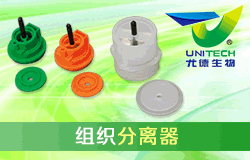|
||||||||||||||||||||||||||||||
| [发表评论] [本类其他产品] [本类其他供应商] [收藏] | ||||||||||||||||||||||||||||||
| 销售商: 颇尔过滤器(北京)有限公司 | 查看该公司所有产品 >> |
SoloHill® Microcarriers – Animal Product Free
Animal Product Free Microcarriers
SoloHill Animal Product Free Microcarriers offer high performance options for researchers wishing to limit or remove animal sources from their processes. They address the worldwide concern with the spread of bovine spongiform encephalopathy (BSE) from cattle to humans as vCJD (variant Creutzfeldt-Jakob disease) which has driven the world's regulatory agencies to strongly suggest the eventual removal of all animal proteins from pharmaceutical manufacturing processes.
Key Features and Benefits
· Raw materials verified Animal Product Free
· Pairs well with serum free and animal free media
· Five different Animal Product Free Microcarriers available
· Starter Kits available to test in your process
The biopharmaceutical and cell therapy industry have expressed their desire to combine serum free media and animal component derivative free (ACDF) microcarriers in protocols for complete manufacturing processes. SoloHill microcarriers offer an immediate step toward this goal. Available now, SoloHill microcarriers can be paired with existing processes and newly developed ACDF media formulations.
The shift to animal free processes is ongoing, requiring collaboration between media manufacturers, microcarrier manufacturers and researchers. Pall Corporation is dedicated to this goal and works closely with media manufacturers and researchers to optimize processes and further develop Animal Product Free Microcarriers.
Hillex® and Hillex®CT
The polystyrene core of the Hillex family of microcarriers is modified with a cationic amine which improves cell attraction. A unique microporous surface improves attachment without affecting harvest efficiency. Hillex CT features the lowest particle counts for a microcarrier of its kind and is particularly well suited for cell therapy applications
· Size range: 160-200 microns
· Specific gravity: 1.09-1.15
· Autoclavable
Plastic and Plastic Plus
These microcarriers feature a styrene copolymer for easy process transfer out of traditional styrene labware methods such as roller bottles and monolayers. Plastic Plus beads incorporate an electric charge to enhance cell attraction and attachment. Solid construction from non-toxic plastic prevents absorption of toxic byproducts. Harvesting is simplified compared to porous microcarriers and harvest cell viabilities are typically greater than 95%.
· Size range: 90-150 micron, 125-212 micron
· Specific gravity: 1.02-1.05, 1.30
· Autoclavable
Glass Coated
Glass has been used as a substrate for cell and tissue culture for many years in roller bottles and monolayer cultures. However, solid glass is poorly suited to microcarrier construction due to its high density (2.4g/cm3). SoloHill microcarriers feature a glass coating on copolymer plastic spheres, limiting density while providing a high silica glass attachment surface. Solid construction prevents absorption of toxic byproducts. Harvesting is simplified compared to porous microcarriers and when proteolytic methods are used viability greater than 95% is typical. The robust design of this carrier also allows harvest methods such as ultrasonication and free thaw.
· Size range: 125-212 micron
· Specific gravity: 1.02-1.05, 1.30
· Autoclavable
Animal Product Free Starter Kits
The best microcarrier and attachment conditions may vary between cell types; experimentation will allow the most confident selection of the optimal microcarrier. To accelerate your evaluation process, SoloHill microcarriers are available in a convenient starter kit.
The SoloHill Microcarrier Starter Kit makes it easy to design multivariate experiments which explore the performance of SoloHill microcarriers across media formulations and cell lines. This Animal Product Free kit has been designed for general cell culture use with any anchorage-dependent cell line.
Each kit contains: 35 grams of microcarriers - 10 g each Hillex II, Plastic Plus, and 5 g each Plastic, ProNectin F-Coated and Glass-Coated microcarriers.
Technical Support
|
SoloHill microcarriers are the most complete line of Animal Product Free microcarriers available to address regulatory matters and today's market requirements. Pall Corporation technical support specialists can assist you in identifying the optimal microcarrier for your needs as well as provide example protocols to suit many process requirements. |
Animal Product Free (APF) Microcarriers
|
| ||||||
|
Series and Description |
Model # |
Relative Density |
Diameter (μm) |
Area (cm2) |
Surface Charge |
Drug Master File |
|
Hillex®CT virtually particle-free modified polystyrene, supplied wetted |
HCT112 - 170 |
1.090-1.150 |
160-200 |
257 |
x |
MF10059 |
|
Hillex®II modified polystyrene |
H112 - 170 |
1.090-1.150 |
160-200 |
515 |
x |
MF10059 |
|
Plastic cross-linked polystyrene |
P102-915 |
1.022-1.030 |
90-150 |
480 |
|
MF 3094 |
|
P102-1521 |
1.022-1.030 |
125-212 |
360 |
|
MF 3094 | |
|
P104-1521 |
1.041-1.049 |
125-212 |
360 |
|
MF 3094 | |
|
Plastic Plus cross-linked polystyrene, cationic charge |
PP102-915 |
1.022-1.030 |
90-150 |
480 |
x |
MF10600 |
|
PP102-1521 |
1.022-1.030 |
125-212 |
360 |
x |
MF10600 | |
|
PP104-1521 |
1.041-1.049 |
125-212 |
360 |
x |
MF10600 | |
|
Glass Coated cross-linked polystyrene coated with high silica glass |
G102-1521 |
1.022-1.030 |
125-212 |
360 |
|
MF3093 |
|
Pronectin F cross-linked polystyrene coated with recombinant RGD-containing protein |
PF102-915 |
1.022-1.030 |
90-150 |
480 |
x |
MF6915 |
|
PF102-1521 |
1.022-1.030 |
125-212 |
360 |
x |
MF6915 | |
|
PF104-1521 |
1.041-1.049 |
125-212 |
360 |
x |
MF6915 | |
|
| ||||||
SoloHill microcarriers are also available in a number of custom configurations
·
small diameters: 30-90 microns
· large diameters: 212-3000 microns
· relative densities: 0.95-1.30
· specialized colors and/or coating options
· gamma irradiated
手机版:SoloHill®微载体
Copyright(C) 1998-2025 生物器材网 电话:021-64166852;13621656896 E-mail:info@bio-equip.com






